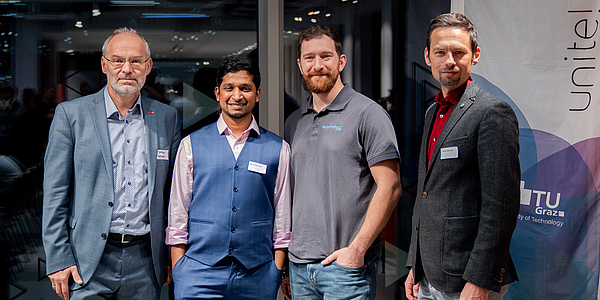How do I make my research performance visible?

Why is the visibility of research performances important?
The impact of research performance is primarily determined by the quality of the research, but also by whether and how research achievements and the researcher are perceived. For this reason, academic identity management should be part of the work of researchers.
What does academic identity management mean?
Academic identity is a bit like an online curriculum vitae or résumé of a researcher, which always exists, regardless of whether this CV is curated or not. It is therefore advantageous to take care of this as early as possible. Questions you can ask yourself are: What results appear when you search for yourself on Google? How long does it take to find your own research work online? Does a private social media profile appear first instead of your research performance when you search for yourself? With academic identity management, you can take the visibility of your own research performance into your own hands and control it, thereby not only helping your own research to gain more visibility and impact, but also reducing potential misinformation or misleading information in search results.
What can I do myself to make my research performance more visible?
- Use and maintain an ORCID (abbreviation for Open Researcher and Contributor ID), a persistent identifier (PID) for researchers, under which all research achievements can be recorded. A PID also reduces the likelihood of your research performance being falsely attributed to others, for example due to identical names.
- Curate your author profiles so that they accurately reflect your research output, for example on Web of Science and Scopus. If databases have automatically created more than one profile for you, merge them.
- Publish open access whenever possible. Open access publications receive more citations than non-open access publications.
- Use social networks to draw attention to your research, such as ResearchGate. Please note, however, that you may only publish full-text articles if this is permitted by your publishing contract.
How does the library support me in this?
- Personalised advice and lectures on all aspects of academic identity management
- Open Access publication fund and publishing agreements
- TU Graz Research Portal for the presentation of your research performance
Kontakt
TU Graz expert: Michaela Zottler
- Has been working as a librarian at the University Library of TU Graz since 2019. Also responsible for advice regarding publication, she supports researchers and students in literature research in the “Service and Information” department.
- Likes to spend her free time playing board and parlour games (e.g. Gloomhaven) and loves books. “My favourite things to read are science fiction and fantasy novels,” says the Graz native. There is also a small, fine selection of science fiction at the Inffeld specialised library, under the signature “XTR”.
- michaela.zottler@tugraz.at




